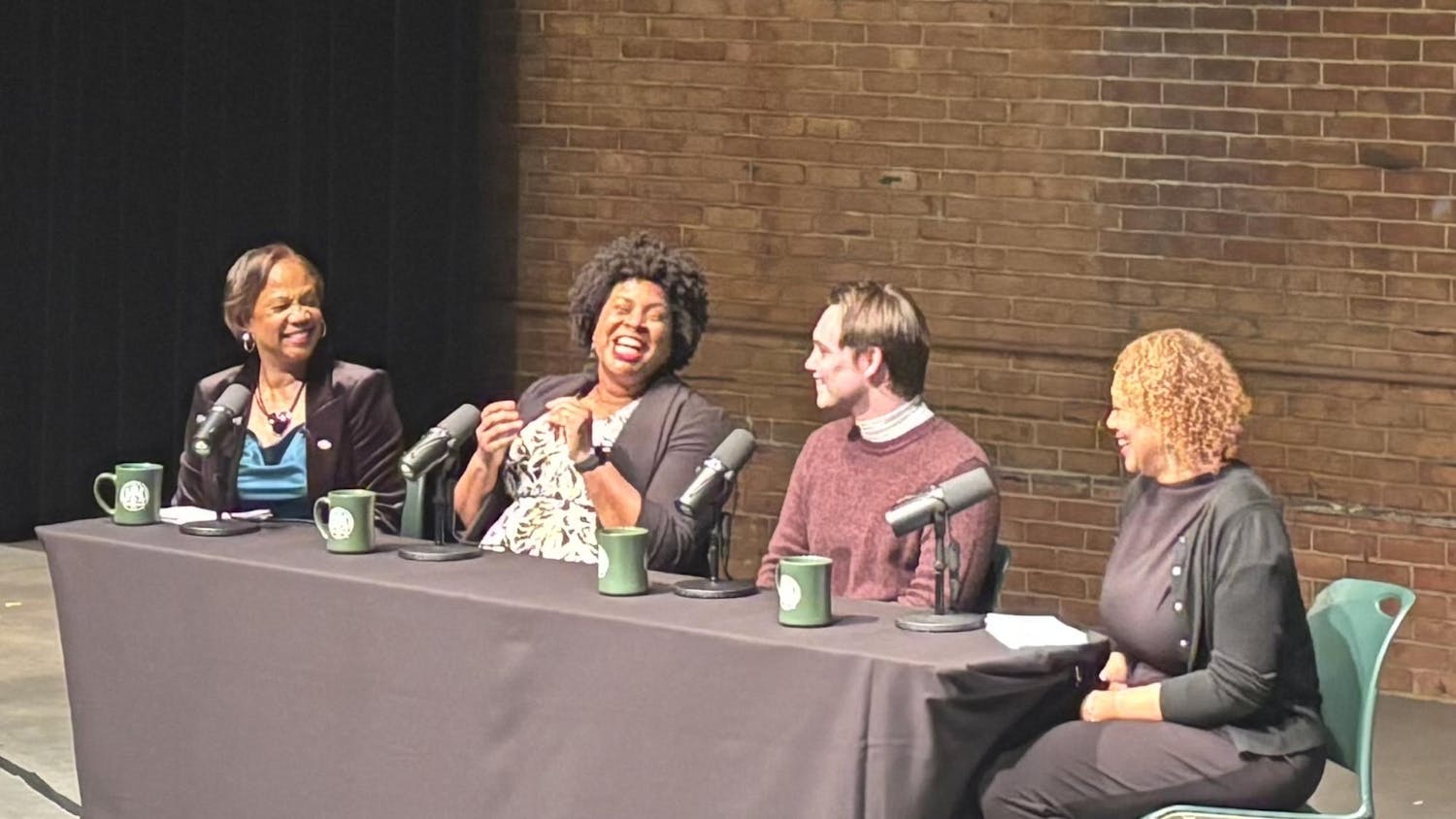The final arguments for the trial of Ed Thomas in the murder of EMU wide receiver Demarius Reed started at 8:30, Monday. Thomas is accused of felony murder or assisting in murder, as well as armed robbery. Nimish Gantra, assistant prosecuting attorney for Washtenaw County began the closing arguments.
Ganatra set the scene from his perspective: that Reed had gone out to his friends, that the night had gone well, that they went to eat after wards, and they parted ways and Reed came home after his roommate, Julius Shelby, did. Shelby ultimately found Reed’s body the next morning.
“Kristopher Pratt testified as to his friendship with Ed Thomas.” Ganatra said. “They had been friends for several years, testified about coming from Detroit to hang out at Popios. They didn’t get in, they ended up in the parking lot and at some point they decided to go to the kickback.”
Ganatra said that Pratt and Thomas didn’t stay long at the party in Reed’s same apartment building. They went to the parking lot, and saw Reed going into the building. Pratt said that it was then that Thomas suggested robbing Reed. The prosecution maintains that Pratt attacked Reed initially and shot him in the side. Pratt testified that after initially shooting him, that Thomas went through Reed’s pockets, stealing Reed’s iPhone and wallet. Then Pratt shot Reed in the face.
“The deal of a lifetime: no one was more surprised than when the state approached Kristopher Pratt … who was facing life in prison without parole is approached by the state,” Lauren Brown, the public defender for Thomas, said. “‘We know you hang out with Ed Thomas, we know he was hanging out with you that night, but we don’t have the evidence to prove that.’”
Pratt’s plea deal did include reducing his sentence to 18 to 30 years, instead of life in prison, in part, if he testified against Thomas. Brown agrees that Thomas was in the area with Pratt, but was not involved in the crime.
Several witnesses testified that they saw two African American men leaving the building. In defense of Thomas, he brought into question the motivation the detective in charge, Sgt. Yuhas, and of the reliability of the ballistics evidence, the lack of DNA or fingerprint evidence, the unreliability of the witnesses and the testimony of one of the prosecutions key witnesses Nicolas Gibby, which he submitted as faulty. “His story changed from one second to another.”
Then Ganatra said they left and then they got rid of the iPhone and wallet and went back to Detroit. The cell phone evidence does place Thomas’s cell phone in the Ypsilanti area and made or received calls no less than fourteen times.
Later that year, Pratt was arrested for a shooting at Eastland Mall using the same gun. The weapon was found in the backseat of Pratt’s car a few days later and it was latter linked to the bullets recovered from Reed’s body and the shell casing. Although the forensics testimony from the police admitted that the bullets were not a perfect match to the gun, it was the right caliber.
“Pratt can’t commit this crime without Ed Thomas being there,” Ganatra said. “He is an essential player. These two are working together in concert. You have enough evidence to convict Ed Thomas of armed robbery and felony murder.”
Brown rejected this notion because of Pratt’s armed robbery attempt at Eastland mall latter that year. Brown said that if he was willing to rob someone for a pair of shoes in broad day light, then he couldn’t need Thomas to tell him to commit a murder.
“Ed Thomas, most definitely hung out with Kristopher Pratt. He didn’t report what Kristopher Pratt did. But on the other hand,” Brown said, “he didn’t involve himself in what Kristopher Pratt did. He didn’t participate and the prosecution hasn’t proved he did.”
“ The fact that Ed Thomas is hanging out at Kristopher Pratt’s grandmothers house after the murder says a lot about him & his relationship with Kristopher Pratt,” Ganatra said. “So much so that he’s hanging out at Pratt’s grandmother’s house when he’s locked up.”
Ganatra said that the defenses assertion that he was in the wrong place and the wrong time doesn’t hold up because it happened too many times. And that there are fourteen cell phone calls from Thomas’s cell phone that night and he pointed out that none of them were to 911.
By 10:00, closing arguments had concluded. Two of the fourteen jurors were then excused and the remaining twelve jury members went into the deliberation room.








